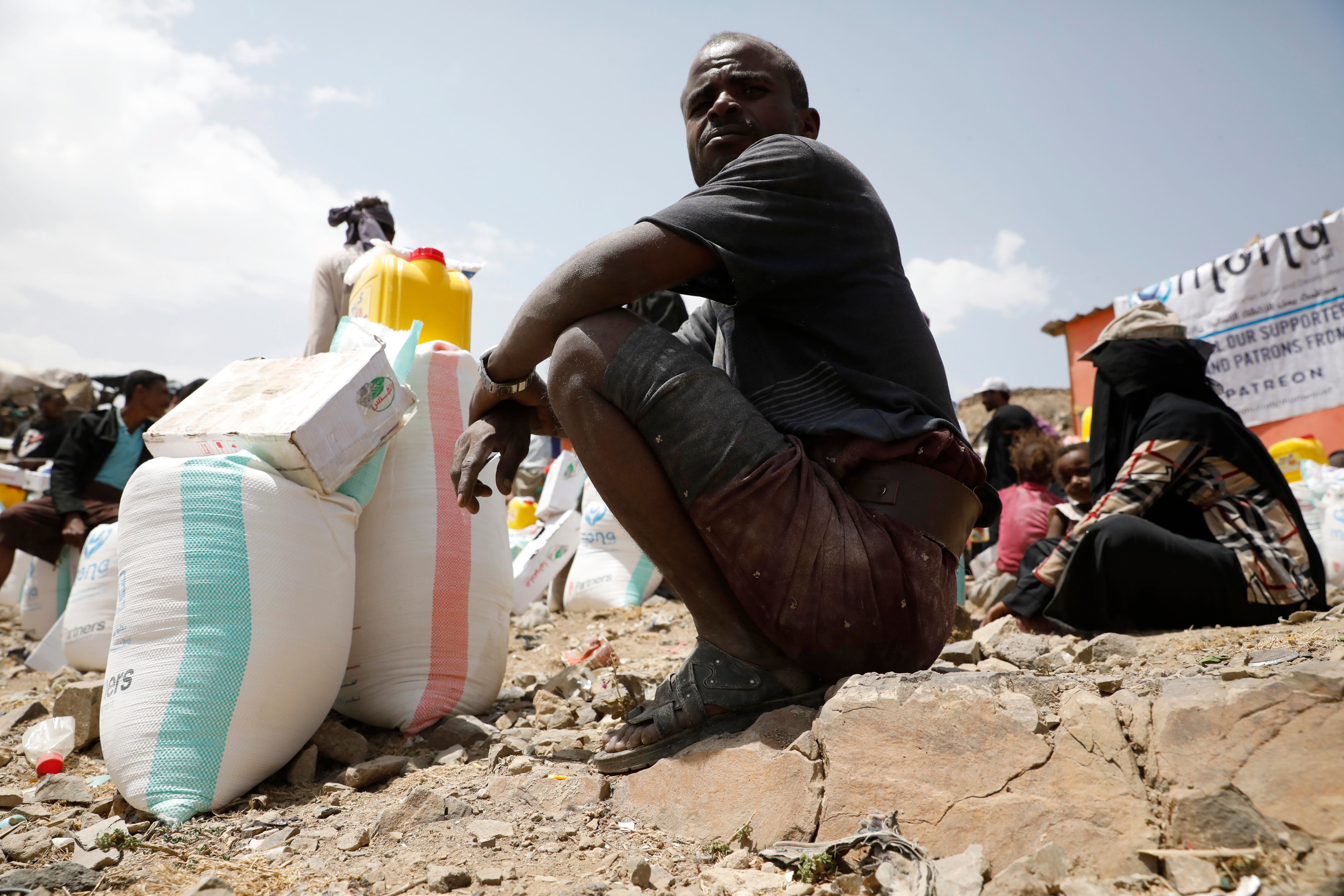Ukraine war pushing UK aid programmes ‘to breaking point’, campaigners warn
Exclusive: Report finds cut to aid budget leaves UK unable to meet strategic priorities and international obligations

Your support helps us to tell the story
From reproductive rights to climate change to Big Tech, The Independent is on the ground when the story is developing. Whether it's investigating the financials of Elon Musk's pro-Trump PAC or producing our latest documentary, 'The A Word', which shines a light on the American women fighting for reproductive rights, we know how important it is to parse out the facts from the messaging.
At such a critical moment in US history, we need reporters on the ground. Your donation allows us to keep sending journalists to speak to both sides of the story.
The Independent is trusted by Americans across the entire political spectrum. And unlike many other quality news outlets, we choose not to lock Americans out of our reporting and analysis with paywalls. We believe quality journalism should be available to everyone, paid for by those who can afford it.
Your support makes all the difference.Anti-poverty campaigners have warned that war in Ukraine is stretching the UK’s overseas aid budget “to breaking point”.
Researchers from the ONE Campaign said the Russian invasion has destroyed the government’s rationale for cutting aid spending from the level of 0.7 per cent to 0.5 per cent of gross national income in 2020.
The non-profit group has called on chancellor Rishi Sunak to bring forward the planned restoration of the 0.7 per cent figure, warning that failure to do so will mean life-saving programmes will be withdrawn from some of the world’s poorest nations.
The Ukrainian war means that the UK will no longer be able to meet its strategic priorities and international obligations within the reduced budget, it added.
Some £220m of UK aid money has been diverted so far to meet immediate humanitarian needs in Ukraine. Meanwhile, the disruption to Ukrainian wheat exports, which make up 10 per cent of global supply, has sent food prices soaring around the world, including in developing countries.
ONE UK director Romilly Greenhill said it was “absolutely the case” that refugees fleeing Vladimir Putin’s war in Ukraine need to be supported as much as people facing famine in east Africa do.
But she said “by keeping our aid budget unnecessarily reduced, the UK is not in a position to do both; it’s forcing itself into a situation where it has to choose between people in crisis,” adding that “we’re seeing a convergence of crises that mean you can’t just pick and choose which problem to deal with in a vacuum”.
The aid cut – equivalent to £4.5bn a year – was described as a “temporary” measure. Mr Sunak has said he hopes to restore spending to its previous level in 2024-25, but Ms Greenhill said this timetable needs to be accelerated.
A report by ONE found that a series of humanitarian disasters, including the Ukraine refugee crisis and the controversial decision to include Covid vaccines in the aid budget, had made the argument for the cut increasingly “out of date”.
The group’s report comes days before Mr Sunak’s mini-budget statement on Wednesday and ahead of the expected publication of the Foreign Office’s international development strategy.
"We’re in a different place to when the aid budget was first cut,” said Ms Greenhill. “Since the chancellor announced the cut in 2020, circumstances have changed, and the justification that was used then no longer holds.
“The government cannot deliver on its own agenda at the current budget, and with more and more spend being added, UK aid is being stretched to breaking point. It’s pushing existing anti-poverty work out.”
ONE’s analysis, carried out before the invasion of Ukraine, found that the decision to cut UK aid meant 4 million fewer girls will have access to a decent education and that 1 million women and children under five will be at risk of malnutrition.
It also found that aid to low-income countries like Ethiopia, Somalia, South Sudan and Yemen had been slashed, while some middle-income countries like China and Brazil saw a rise in funds received.
UK overseas development aid to Ethiopia fell by 55 per cent from £240.5m in 2020-21 to £107.5m in 2021-22, while China’s funding rose from £2.2m to £13.7m in the same period, the report found.
A government spokesperson said: “The UK has a long history of helping other countries in need and we are one of the largest aid spenders globally.
“We are leading the world in protecting people fleeing the conflict in Ukraine and have already provided £220 million in aid, including for life-saving medical supplies, shelter and hygiene kits.”
“International development remains a core FCDO priority and we will return to 0.7 per cent as soon as the fiscal situation allows.”
Join our commenting forum
Join thought-provoking conversations, follow other Independent readers and see their replies
Comments